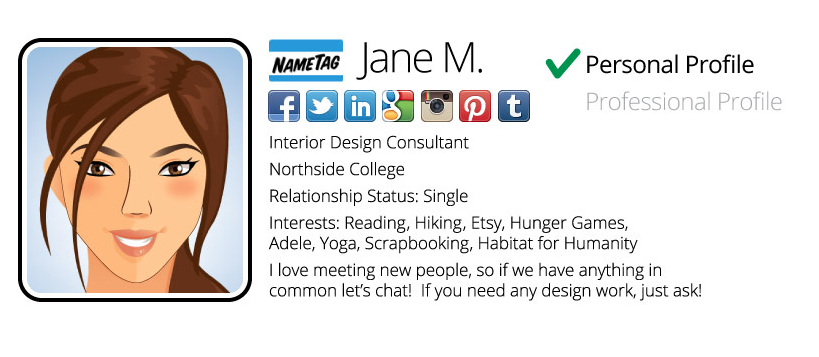Al Franken Isn’t Too Keen On Google Glass Face-Recognition App
That’s how Senator Al Franken of Minnesota felt after hearing about the development of an app called NameTag, which according to its makers “can spot a face using Google Glass’ camera, send it wirelessly to a server, compare it to millions of records and in seconds return a match complete with a name, additional photos and social media profiles,” including online dating sites like OKcupid, PlentyOfFish, and Match.com.
Google currently forbids such facial recognition apps on Glass, but NameTag could run on a jailbroken device that has been tweaked to work around Google’s restrictions.
Feeling that this app may cross a line that shouldn’t be crossed, Sen. Franken sent a letter this week to the makers of NameTag
The senator, who is also Chairman of the Senate Judiciary Subcommittee on Privacy, Technology and the Law, says that NameTag’s facial recognition technology, which does not require the knowledge or permission of its subject, “crosses a bright line for privacy and personal safety.
“I urge you to delay this app’s launch until best practices for facial recognition technology are established,” he continues. “At a minimum, NameTag should only identify people who have given the app permission to do so.”
Franken says there is a specific need to sort out privacy issues surrounding facial recognition software.
“Unlike other biometric identifiers such as iris scans and fingerprints, facial recognition is designed to operate at a distance, without the knowledge or consent of the person being identified,” he explains. “Individuals cannot reasonably prevent themselves from being identified by cameras that could be anywhere — on a lamppost across the street, attached to an unmanned aerial vehicle, or, now, integrated into the eyewear of a stranger.”
To the makers of NameTag, Franken writes, “Your company has a duty to act as a responsible corporate citizen in deploying this technology, which must be done in a manner that respects and protects individual privacy… I urge you to limit the app’s facial recognition feature to only those individuals who have given their affirmative consent. Such an opt-in feature is a well-recognized best practice for mobile apps, but it is unclear whether NameTag will be opt-in.”
He also expressed concerns about an app like NameTag being a juicy target for hackers.
“This vulnerability was underscored two years ago when Face.com, a company that was later acquired by Facebook, released the first commercial grade facial recognition program for public use,” recalls Franken. “Although the program was designed to only identify the customer’s Facebook friends, it was quickly hacked so that it could potentially be used to identify total strangers.”
The senator provided the developers with a list of questions to which he’d like a response, including:
• Will NameTag be an opt-in program?
• How are you addressing concerns that NameTag could be used by stalkers or other bad actors to jeopardize personal safety?
• Which facial recognition database does NameTag use to identify faceprints? Is it owned by your company? If not, who owns the database?
• Does NameTag use any Facebook photos, including public profile photos, to help identify individuals? What other websites are used?
• How do you plan to address Google’s prohibition on facial recognition Glassware?
Here is a demo of the app from its makers:
Want more consumer news? Visit our parent organization, Consumer Reports, for the latest on scams, recalls, and other consumer issues.


